Liverpool already have their Brazilian trio at the heart of their squad, and new rules mean that more South American players could be heading to Merseyside, explains James Nalton.
When the UK officially left the European Union on December 31 2020, new guidelines needed to come into play for overseas players looking to work in the English leagues.
The new guidelines consist of a 27-page document, updated for the new season, outlining the criteria overseas players need to fulfil to gain a governing body endorsement (GBE). This then allows them to secure a permit enabling them to work in the English leagues.
Different criteria apply to managers and there is a separate section for youth players, but from a Liverpool perspective, they will usually be dealing with players playing fairly regularly at a reasonably high level.
In short, in order to be awarded a GBE players need to accumulate a certain amount of points from various criteria such as the percentage of minutes played for their club, appearances for their national team, the achievements of their club and the level at which they are playing.
It was thought this would make it difficult for English clubs to sign overseas players, but in some ways, it has made it easier than it was before, and won’t have much of an effect on the business carried out by Premier League clubs at senior level.
South American gems
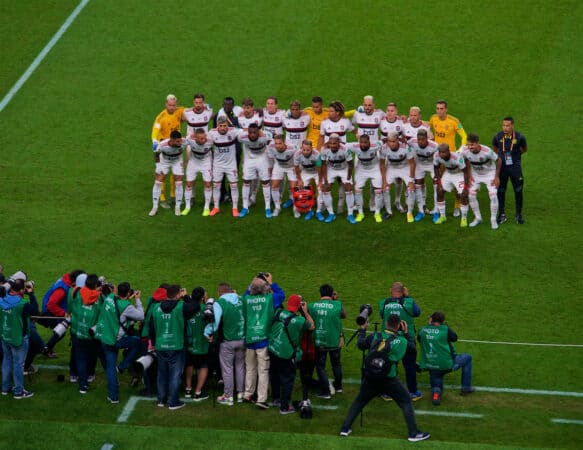
Agustín Alvarez Martinez
Club: Penarol (Uruguay)
DOB: 19/05/2001 (20)
Position: Forward
Though the highly-rated young forward plays his football in Uruguay — one of the lower-ranked leagues — he would qualify for a GBE thanks to minutes played in the Copa Sudamericana and progress to the quarter-finals with Penarol.
Kaiky
Club: Santos (Brazil)
DOB: 12/01/2004 (17)
Position: Centre-back
European clubs will be keeping an eye on the Santos defender who is performing at a level well beyond his years. His minutes in the Copa Libertadores mean he will have no problems moving to a Premier League club once he turns 18 in the 2022 January transfer window.
Danilo
Club: Palmeiras (Brazil)
DOB: 29/04/2001 (20)
Position: Midfielder
“Danilo has been performing at a high level at one of the best clubs on the continent for a while now,” says South American football expert Tom Robinson. “A well-rounded midfielder who is definitely good enough for Europe.” He’s been a regular in a Palmeiras side that won the Libertadores last year and have made it to the quarter-finals as they look to defend their title.
Marcos Leonardo
Club: Santos (Brazil)
DOB: 02/05/2003 (18)
Position: Striker
Santos remains one of the most exciting clubs in Brazil when it comes to producing talented young players, and Marcos Leonardo is the latest attacking prospect to emerge from their ranks. He broke goalscoring records at youth level and could be the next star off the Santos production line.
Gabriel Menino
Club: Palmeiras (Brazil)
DOB: 29/09/2000 (20)
Position: Midfielder / right-back
Gabriel Menino is an already reasonably well-established player who is currently with Brazil’s Olympic team in Japan. He’s already in the mind of senior national team manager, Tite, having been called up for provisional squads, suggesting it won’t be long before the versatile youngster wins his first senior cap.
Limitations
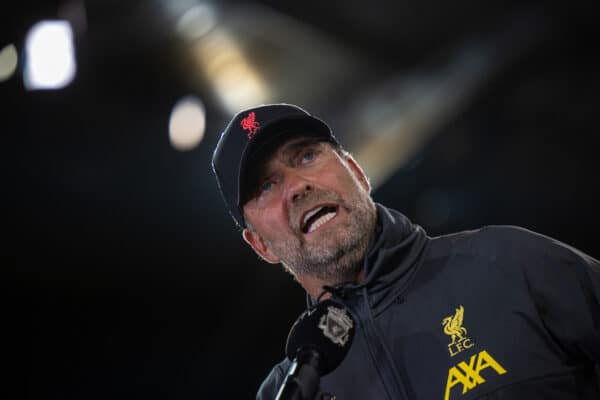
The immediate stumbling block when it comes to signing overseas players is that they need to be over 18 before they can be registered with the club. As a result of Brexit, this now includes players from the European continent as well as international transfers.
This isn’t necessarily a bad thing and can prevent rich clubs from hoarding footballers in their youth academies when those players might be better continuing their development at their local clubs. It may also open up more of a pathway for homegrown players at English clubs.
As was the case with signing non-EU players previously, there’s a possibility that transfers could be arranged and then delayed until the player turns 18. Recent examples of this include Man City’s signings of Peruvian Kluiverth Aguilar and Brazilian Diego Rosa.
A Liverpool example would be their pursuit of 17-year-old Ghanaian Abdul Fatawu Issahaku. The club were interested in the player but talks stalled due to an inability to arrange a future transfer and a GBE.
It is now thought that Fatawu will move clubs in the January transfer window, and if this is to a club competing in the Champions League or Europa League — Sporting, for example — Liverpool would have no problem obtaining a work permit should they look to sign the player once he’s turned 18.

Another example for Liverpool is Taiwo Awoniyi, who was able to get a work permit under the new rules having been unable to under the old ones.
While it is the case that it’s not as easy as it was before to sign EU players in some circumstances, the majority of European players targeted by Premier League sides should have no problem gaining a work permit.
Football League clubs who are operating in lower tiers of the market may find it more difficult to sign overseas players, but for clubs at the top level it’s opened up more of the world, especially South America.
South America

Throughout history, the South American continent has produced the world’s best footballers and continues to do so. Clubs continue to scour the region for the best talent.
In terms of signing players from South America post-Brexit, it’s likely that any player over 18 and playing regularly in either the Copa Libertadores or Copa Sudamericana — the South American equivalents of the Champions League and Europa League — should have no problem securing a work permit.
It’s as easy to sign players regularly playing continental football in South America as it to sign a high profile player from Europe.
Work permit rules for non-EU players prior to Brexit put a lot of weight on international appearances and transfer fees, but this is no longer the case.
Though international appearances can still go a long way to helping a player gain a work permit, more recognition of South America’s continental tournaments and domestic leagues, especially those of Brazil and Argentina, makes signing promising South American players much easier than it was before.
It makes sense, therefore, for a club like Liverpool to scout the Copa Libertadores and Sudamericana more intensely than they were before.

The Brazilian and Argentine leagues are rated highly in the criteria used to determine how many points a player gets towards their work permit.
They are on a par with the Russian Premier League and Scottish Premiership, and above leagues such as Major League Soccer and the Czech First League — the latter being a successful scouting ground for West Ham last season with the signings of Vladimir Coufal and Tomas Soucek.
Even players from lower-rated leagues can use a combination of continental and international football to gain enough points for a work permit, as was the case with Brighton’s signing of Moises Caicedo from Ecuadorian side Indipendiente del Valle.
Question marks remain over whether players from the South American leagues are good enough to take up valuable overseas player spots in the Liverpool squad, but it’s worth monitoring these leagues so as not to miss out on such players on the occasions they do appear.
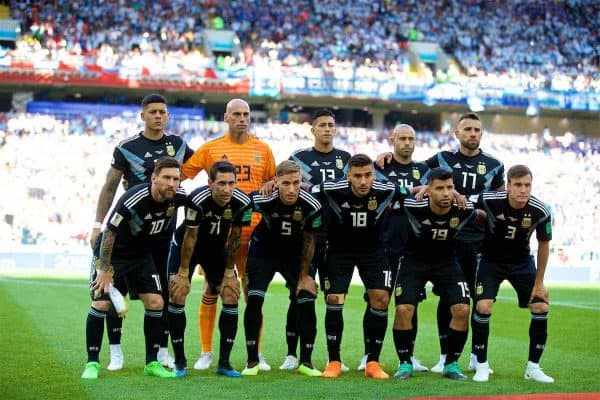
Real Madrid centre-back Eder Militao, who is likely to step in for Man United bound Raphael Varane, played just one season at Porto before convincing one of the biggest clubs in Europe he was good enough for them, while Vinicius Junior moved straight to Real from Flamengo.
Inter’s Lautaro Martinez is attracting attention from English clubs in this transfer window, having moved straight to the Serie A side from Racing in 2018.
The quality players are still coming through in South America, even though it could be argued there have been no real global superstars from the continent since Neymar.
Squad Value
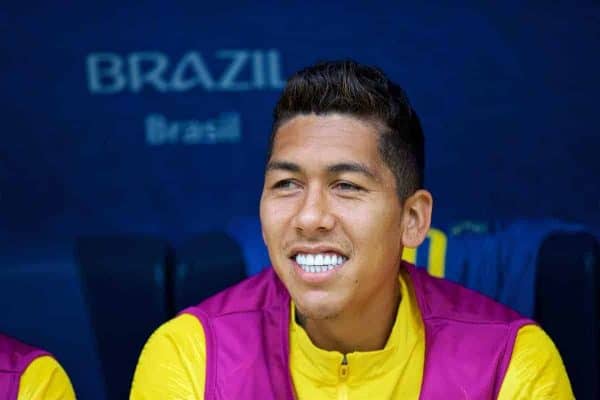
The value of each spot in Liverpool’s 25-man Premier League squad has become much more apparent during the current transfer window.
With a limit of 17 overseas players, each signing has to be done with great care and with a clear idea as to what they will bring to the first team.
The alternative is to become a player-hoarding club using affiliated clubs to send players out on loan.
This may help with work permits for players who don’t meet the criteria, but it seems unfair on the players to stall their careers in such a manner, and it’s very rare that these players end up playing for the parent club.
The post-Brexit requirements for overseas players aren’t necessarily a bigger obstacle than existed before. They are just another way of restricting the movement of workers that, on a global scale, isn’t too different to the one in place while Britain was still part of the EU.
For a club like Liverpool, it could open up a new source of talent in South America, as long as the players they identify are good enough to take up one of those valuable squad places.
* James Nalton is the founder and editor of World Football Index, which is home to the comprehensive South American Football Show podcast.


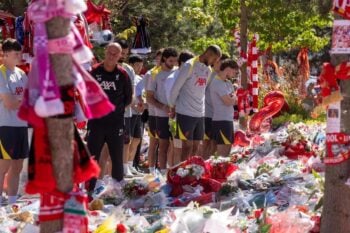



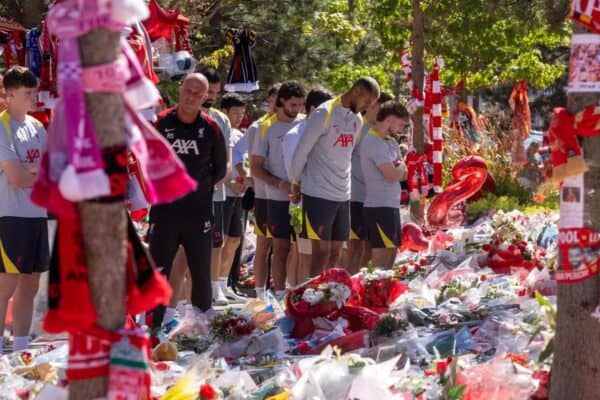
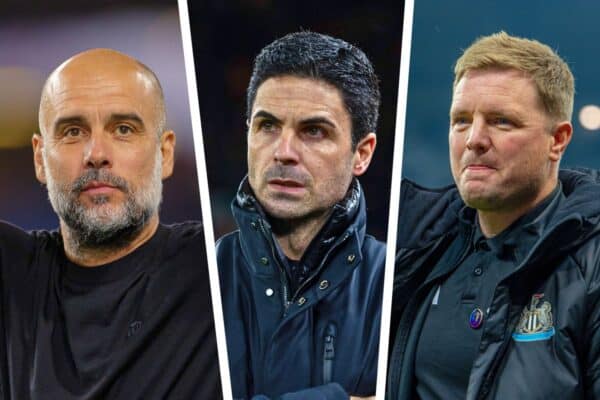









Fan Comments